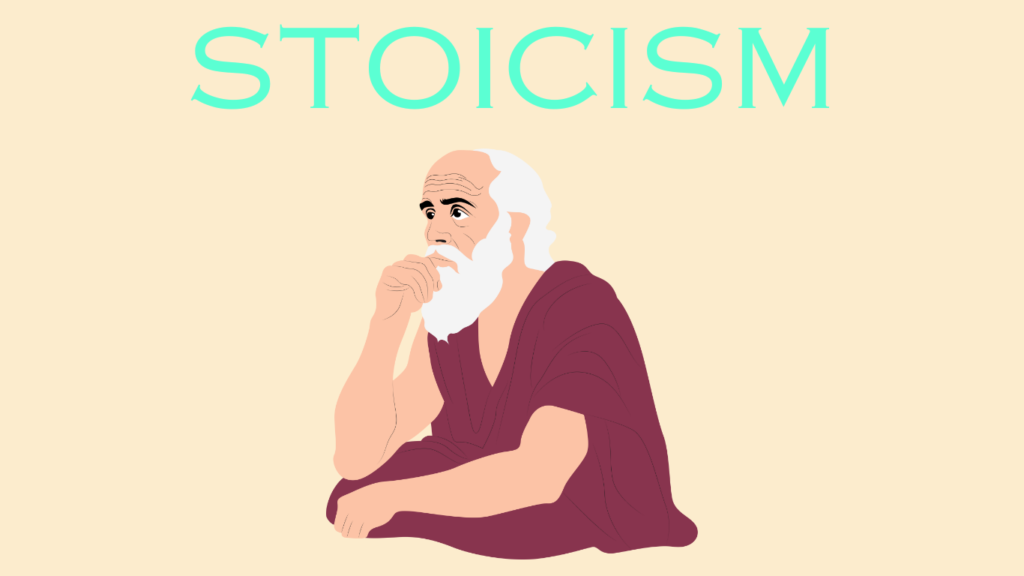Embracing Stoic Principles: The Timeless Philosophy for Modern Life

In a world filled with distractions, uncertainties, and emotional turmoil, the ancient philosophy of Stoicism offers a guiding light for those seeking clarity, resilience, and purpose. Rooted in the teachings of great thinkers like Epictetus, Seneca, and Marcus Aurelius, Stoicism is a practical philosophy that emphasizes virtue, self-control, and the pursuit of wisdom, while also highlighting the importance of aligning our individual concerns with those of our fellow human beings to foster mutual cooperation and understanding.
Table of Contents
What is Stoic Philosophy?
Stoicism emerged in ancient Greece around 300 BCE, founded by Zeno of Citium. The philosophy later flourished in Rome, where it found adherents among statesmen, writers, and emperors.
At its core, Stoicism teaches that we cannot control external events, but we can control our perceptions, emotions, and actions. By focusing on what lies within our power, Stoics believe we can achieve tranquility and live in harmony with nature.
The influence of Stoicism on later thinkers, including Christian writers like St. Paul and Augustine, highlights the evolution of Stoic theory and its integration into various philosophical and theological frameworks.
History of Stoicism
Stoicism has a rich and fascinating history that spans over two millennia. The Stoic school was founded in Athens, Greece around 300 BCE by Zeno of Citium, a wealthy merchant who turned to philosophy after surviving a shipwreck.
Zeno’s teachings emphasized the importance of reason, self-control, and indifference to external events. He believed that individuals should focus on things within their control and accept things outside of their control with equanimity.
The Stoic school flourished in ancient Greece and Rome, attracting many prominent philosophers, including Epictetus, Seneca, and Marcus Aurelius. These eminent philosophers developed and refined Stoic teachings, which emphasized the importance of living in accordance with nature and cultivating inner strength and resilience.
Epictetus, a former slave, taught that true freedom comes from within, while Seneca, a statesman and playwright, wrote extensively on the practical applications of Stoic ethics. Marcus Aurelius, a Roman emperor, embodied Stoic principles in his leadership and personal reflections, which are immortalized in his work Meditations.
Throughout history, Stoicism has influenced many fields, including philosophy, psychology, and politics. It has also inspired many notable figures, including Immanuel Kant, Jean-Jacques Rousseau, and Adam Smith.
The enduring appeal of Stoicism lies in its practical wisdom and its emphasis on personal responsibility and resilience, making it a timeless guide for navigating the complexities of human existence.
Key Principles of Stoic Ethics
- Control What You Can, Accept What You Can’t: The cornerstone of Stoic philosophy is the dichotomy of control. As Epictetus famously said, “It’s not what happens to you, but how you react to it that matters.” By recognizing what is within our control—our thoughts, choices, and actions—and letting go of what isn’t, we can free ourselves from unnecessary suffering.
- Focus on Virtue: For Stoics, living a good life means cultivating the four cardinal virtues: wisdom, courage, justice, and temperance. These virtues guide ethical behavior and help us act with integrity, even in challenging circumstances.
- Practice Negative Visualization: Negative visualization involves contemplating worst-case scenarios to prepare the mind for potential hardships. This practice fosters gratitude for what we have and reduces fear of loss. Additionally, Stoic techniques can foster positive emotions like gratitude and joy, enhancing our overall well-being.
- Memento Mori: Remember Death: Stoics frequently reflect on mortality, not to induce fear but to inspire urgency and mindfulness. Understanding that life is finite encourages us to live fully and prioritize what truly matters.
- Live in Accordance with Nature: Living in harmony with nature means accepting life’s ebb and flow, adapting to change, and aligning our actions with reason and purpose. It also involves understanding and adhering to one’s own nature, recognizing that our behaviors and actions stem from our innate disposition.
The Importance of Self-Awareness
Self-awareness is a cornerstone of Stoic philosophy. Stoic philosophers believe that individuals should strive to understand their own thoughts, feelings, and behaviors to live a virtuous life.
Self-awareness involves recognizing one’s strengths and weaknesses, as well as understanding one’s values and goals. By cultivating self-awareness, we can align our actions with our true nature and make choices that reflect our highest ideals.
Stoics assert that self-awareness is essential for making good decisions and taking control of one’s life. By understanding oneself, individuals can identify areas for improvement and work to develop their character.
Self-awareness also helps individuals recognize when they are acting impulsively or irrationally and take steps to correct their behavior. This introspective practice is crucial for achieving the Stoic ideal of living in harmony with nature and reason.
In everyday life, self-awareness can be cultivated through practices such as meditation, journaling, and self-reflection. By taking the time to reflect on their thoughts and feelings, individuals can gain a deeper understanding of themselves and make positive changes in their lives.
These practices not only enhance personal growth but also foster a greater sense of inner peace and fulfillment, guiding us toward a more virtuous and meaningful existence.
The Relevance of Stoicism in Everyday Life Today
In the fast-paced, hyper-connected modern world, Stoicism’s emphasis on mindfulness and emotional resilience is more pertinent than ever. Here are some ways it can be applied:
- Stress Management: By focusing only on what we can control, we can reduce anxiety and better navigate stressful situations. The Stoic claim that our emotional responses are mediated by our judgments and opinions about external stimuli suggests that by recognizing this judgment stage, we can exercise greater control over our emotional reactions.
- Improved Decision-Making: The Stoic practice of pausing to evaluate our choices fosters rational thinking and helps us avoid impulsive actions.
- Enhanced Relationships: Stoicism teaches us to approach others with empathy, patience, and fairness, improving interpersonal connections.
- Greater Fulfillment: By prioritizing virtue over material pursuits, Stoicism guides us toward a life of meaning and contentment.
Getting Started with Stoic Philosophers
For those new to Stoicism, consider the following steps:
- Read the Classics: Begin with foundational texts like Meditations by Marcus Aurelius, Letters to a Stoic by Seneca, and The Enchiridion by Epictetus.
- Practice Daily Reflection: Set aside time to reflect on your actions, thoughts, and emotions. Journaling can be a powerful tool for this.
- Apply Stoic Exercises: Incorporate practices like negative visualization and gratitude into your daily routine.
- Seek Community: Join modern Stoic groups or online forums to discuss ideas and share insights.
- Understand Stoic Psychology: Explore how Stoic psychology views the soul as corporeal, emphasizing its causal interaction with the body and the nature of rationality. This understanding is crucial for taking responsibility for one’s character and decisions.
Mindfulness and Meditation
Mindfulness and meditation are essential practices in Stoic philosophy. Stoic philosophers believe that individuals should strive to be present in the moment, focusing on their thoughts, feelings, and sensations without judgment.
Mindfulness involves paying attention to one’s experiences in a non-judgmental way, while meditation involves focusing one’s attention on a specific object or activity. Stoics believe that mindfulness and meditation can help individuals cultivate inner strength and resilience.
By focusing on the present moment, individuals can reduce stress and anxiety and develop a greater sense of calm and clarity. These practices also enhance self-awareness, which is crucial for making good decisions and taking control of one’s life. By being mindful, we can better understand our reactions and choose responses that align with our values and goals.
In everyday life, mindfulness and meditation can be practiced through a variety of techniques, including deep breathing, progressive muscle relaxation, and guided imagery. By incorporating these practices into their daily routine, individuals can cultivate greater mindfulness and meditation, and live a more virtuous and fulfilling life.
These practices not only improve mental and emotional well-being but also help us navigate life’s challenges with grace and equanimity, embodying the Stoic ideal of living in accordance with nature and reason.
Conclusion
Stoicism is not about suppressing emotions or becoming indifferent to life’s challenges. Instead, it is a philosophy of empowerment—teaching human beings to face adversity with courage, embrace change with grace, and live with purpose and virtue. Whether you’re navigating personal challenges or seeking a more meaningful existence, Stoicism offers timeless wisdom for a fulfilling life.
Start your journey today, and let the words of Marcus Aurelius remind you: “You have power over your mind—not outside events. Realize this, and you will find strength.”

